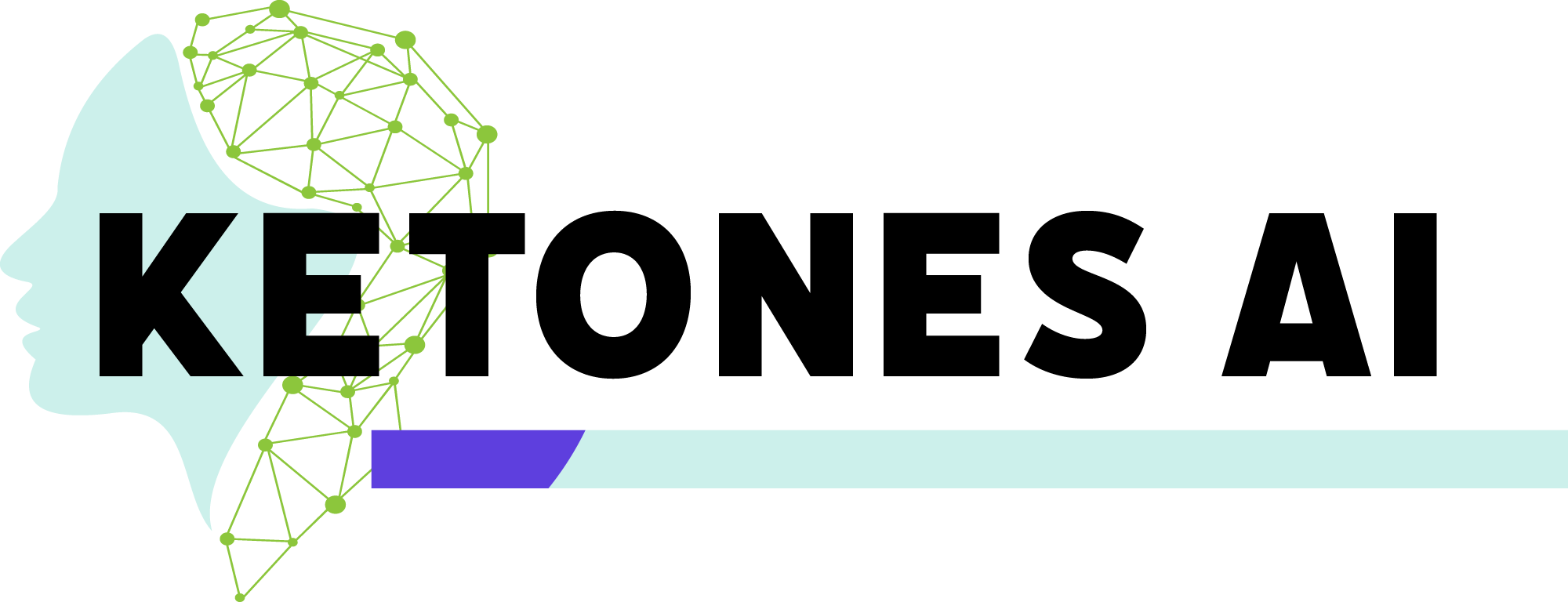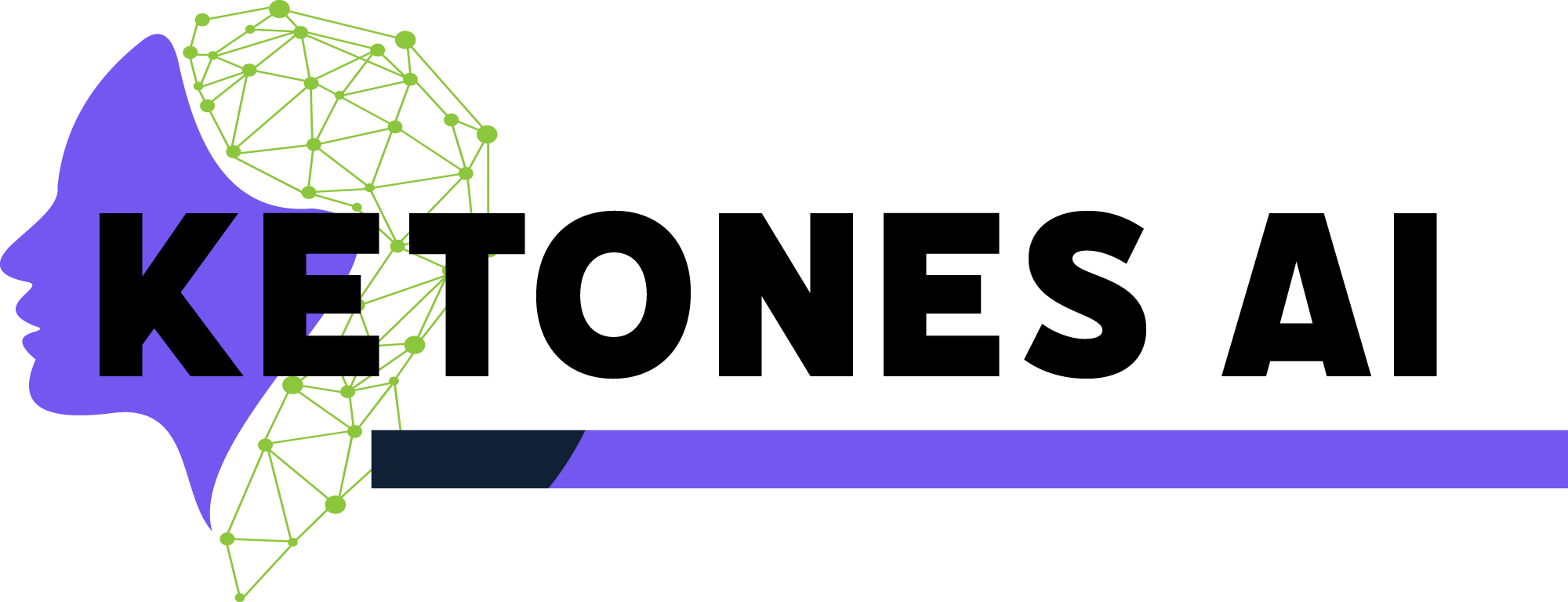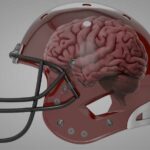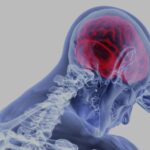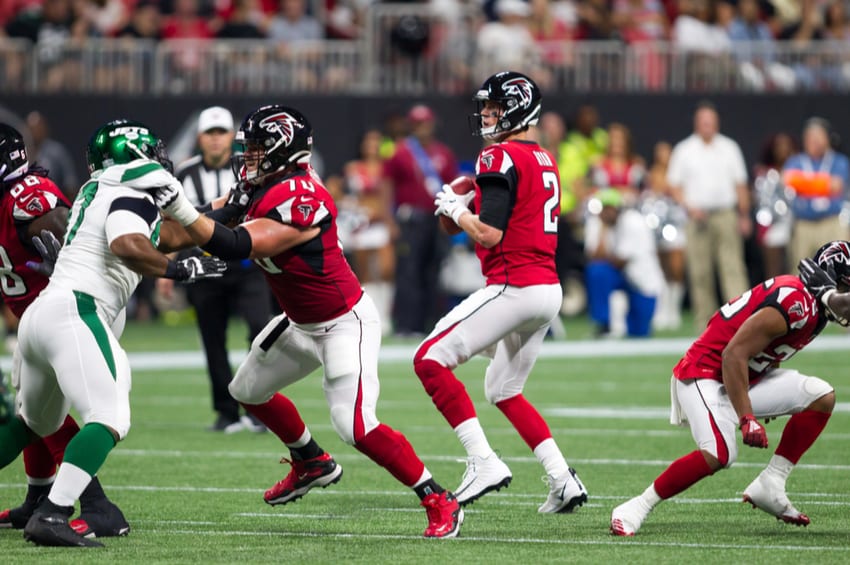
What is Traumatic Brain Injury?
Athletes, especially football players, are highly susceptible to traumatic brain injuries (TBI). Repetitive neurological injuries, like TBIs or concussions, can lead to a condition known as CTE (chronic traumatic encephalopathy). Studies have shown a high percentage of NFL players, who frequently experience sports-related injuries, have developed CTE. TBIs and CTE can cause inflammation, oxidative stress, and mitochondrial damage. Common side effects include nausea, vomiting, headaches, mood or personality changes, trouble sleeping, impaired brain function, and memory issues.
How Can Ketone Help TBIs?
One potential cure to traumatic brain injury may be the presence of ketone bodies (from fasting, exogenous ketone consumption, or following a ketogenic diet). While TBI causes initial injury to the brain, many of the short and long-term negative effects may be caused by the secondary injury. Following brain trauma, a cascade of events occurs which causes a robust increase in energy needs to the brain with an impaired ability to use carbohydrates/glucose. Thus, during and following traumatic brain injury, your brain is starving for energy/fuel, but most people aren’t providing the right fuel source. Though glucose uptake is impaired, ketone uptake can still occur. There are at least five different ways that being in a state of ketosis may be beneficial to traumatic brain injury. Ketones provide an alternative fuel source to glucose which can help overcome the energy deficit seen during trauma. Specifically, while glucose takes several enzymatic steps to move into the Krebs cycle of the mitochondria, ketones only require 3 steps. Moreover, ketones are more than 25 % more efficient than glucose as fuel. Thus, ketones yield more ATP per molecule. Secondly, ketones lower free radical production, first by improving mitochondrial function and second by increasing antioxidant enzymes that counter oxidative stress. Third, ketones improve mitochondrial function and number. Fourth, ketones lower inflammation. Ketogenic diets lower cytochrome c release and therefore lower apoptosis. In addition to all this, the inability to use glucose appears to trigger an increased ability to use ketones following traumatic brain injury. This is evidenced by studies demonstrating increases in the ketone transporters’ monocarboxylate transporter MCT2 and MCT1 expression in the brain.
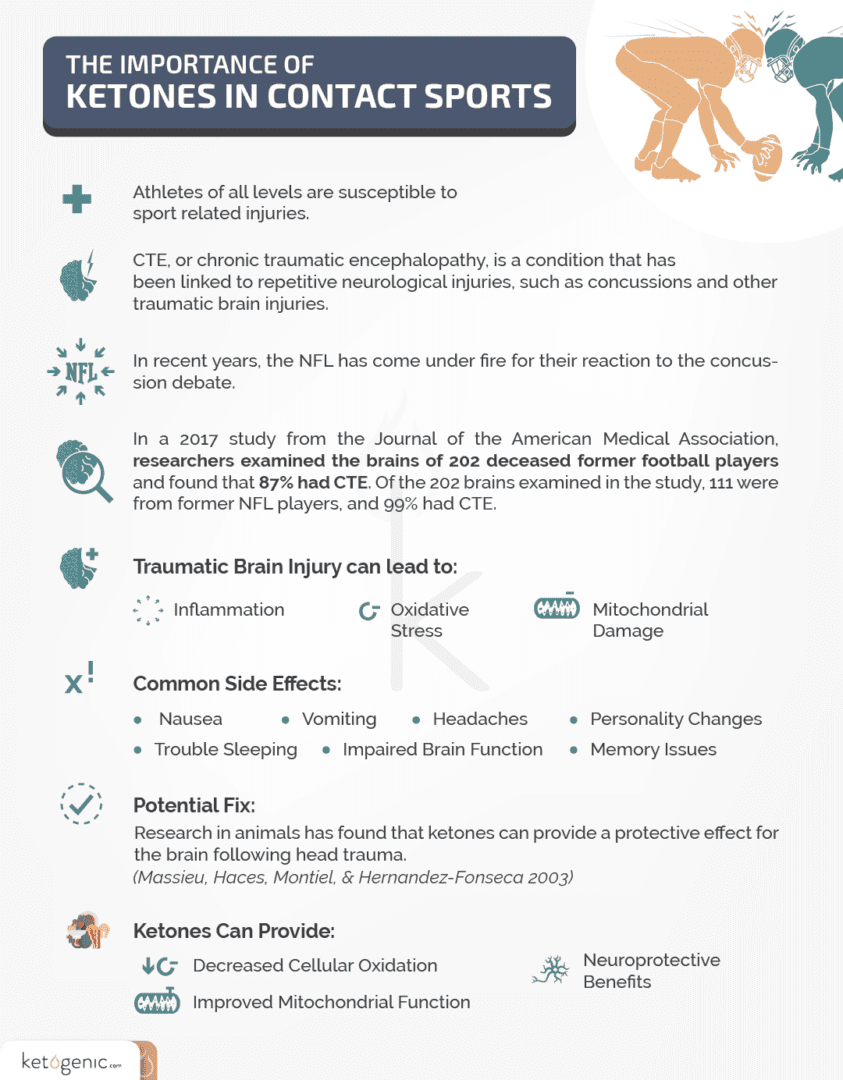
References
1. Mez J, Daneshvar DH, Kiernan PT, et al. Clinicopathological Evaluation of Chronic Traumatic Encephalopathy in Players of American Football. JAMA. 2017;318(4):360–370.
2. Massieu L, Haces ML, Montiel T, Hernández-Fonseca K. Acetoacetate protects hippocampal neurons against glutamate-mediated neuronal damage during glycolysis inhibition. Neuroscience. 2003;120(2):365–378.
Source: https://ketogenic.com/traumatic-brain-injury-ketones/
